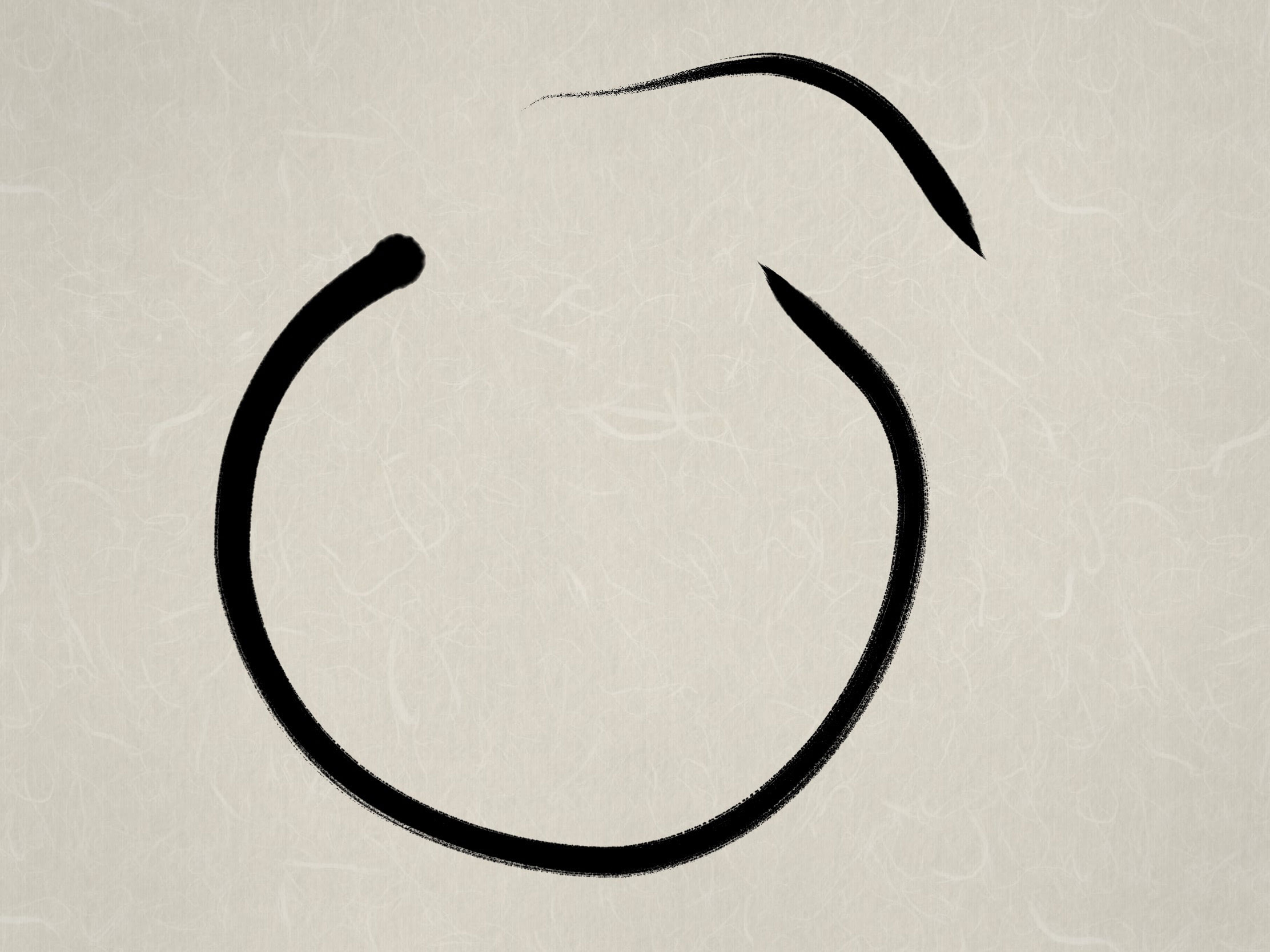This January, 70 people started meeting online and on Pratt’s campus to share their thoughts on how they can be creative leaders while uplifting self-care and community. Including artists, educators, consultants, writers, arts council leaders, designers, and nonprofit administrators, and hailing from disparate parts of the world, from Australia and Ireland to Peru and Las Vegas, they were joined together by a shared interest in bringing contemplative skills into their work.
They were all selected through an international open call for the Mindfulness Collaboratory, a two-year initiative through the School of Continuing and Professional Studies (SCPS) that is aimed at fostering international interconnectedness and encouraging participants to lead with intention in the creative fields. Especially at a time when the creative economy is changing and needs to adapt, whether from the increase in remote work or the advent of AI, the Mindfulness Collaboratory is concentrated on forging a resilient and adaptable workforce while keeping self-care at the forefront.
“I am so grateful for the Collaboratory, a model the world needs to hear more about and be inspired to support artists with,” said Michelle Knapik, president of the Emily Hall Tremaine Foundation, which supported the initiative with a two-year grant.
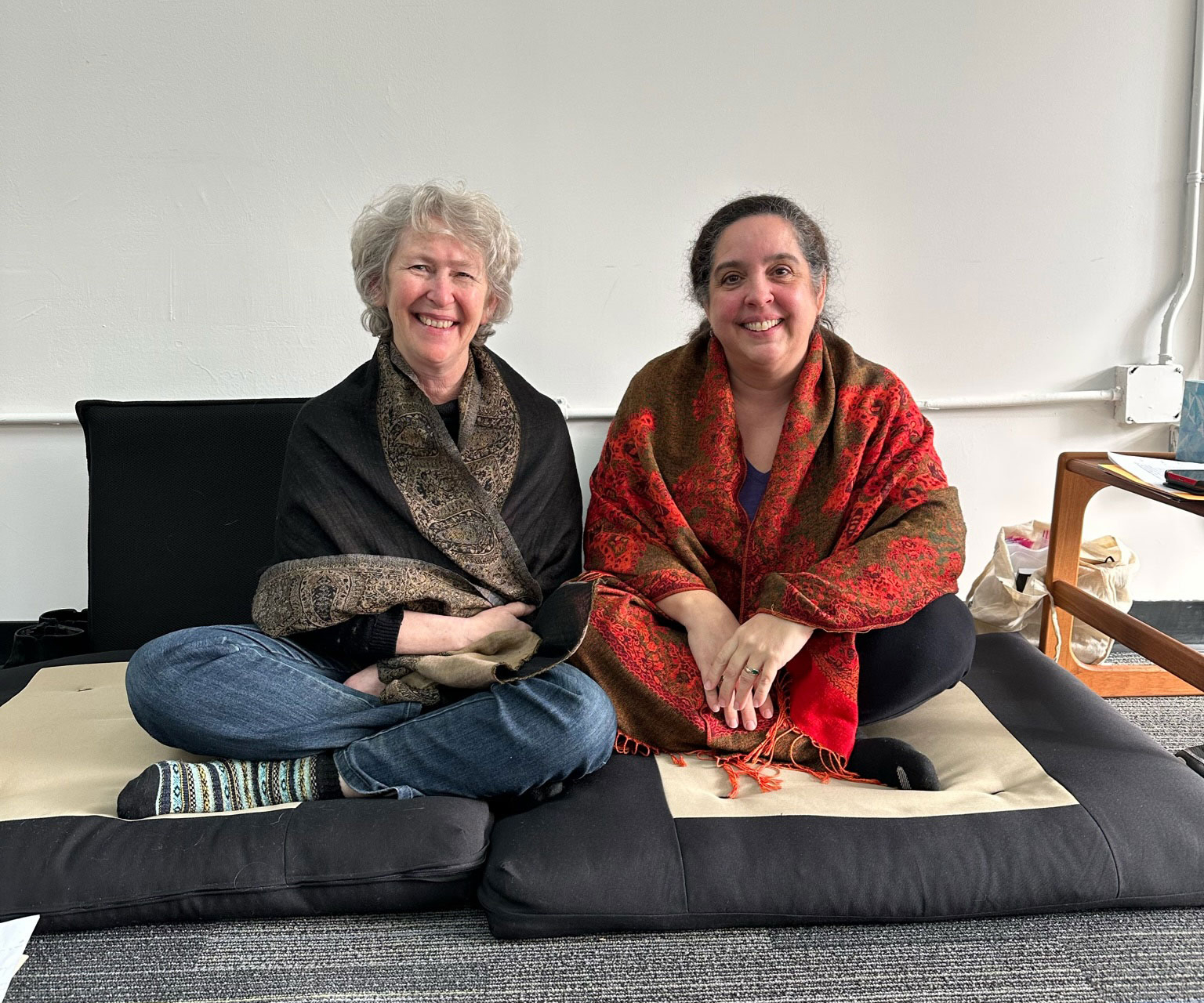
The Mindfulness Collaboratory is led by Rhonda Schaller, Pratt’s assistant vice president for resilience, wellness, and well-being and a visiting associate professor, with a team that includes Dr. Esmilda Abreu, a visiting associate professor in the School of Design at Pratt and the vice president for student affairs at Mohawk Valley Community College; Sam Harvey, the assistant director of Pratt’s Office of Resilience, Wellness & Well-Being; and Mackenzie Adriance, associate director and work and life specialist in Pratt’s Center for Career and Professional Development.
“We’re curious about the role of contemplative practices, mindfulness, and self-care as a creative practice and as a leadership tool,” Schaller said. “Our goal is to bring artists, cultural leaders, and meditators together with the shared purpose of bringing these practices into creative communities. Within our institutions, we acknowledge well-being is important, but what is it exactly, and how can we practically support it when it is needed now, more than ever? We invite each participant to bring their direct lived experience into this project, and through a variety of techniques that support their leadership and well-being and that build resilience, we can integrate self-care and mindfulness practices as the base upon which to grow creatively.”
Before joining Pratt in 2012, Schaller had launched mindfulness workshops at the School of Visual Arts (SVA) and was running meditation workshops. This led to the development of the Meditation Incubator at Pratt, a ten-week program open to faculty, students, alumni, and staff who learn to meditate and use visualization in their creative work and studio practices. Over 2,000 people have now participated during the Meditation Incubator’s nine years at Pratt. In 2022, Schaller received a Fulbright Specialist Program Award to spend six weeks at MTU Crawford College of Art and Design in Cork, Ireland, for a “Self-Care as Creative Practice” project that brought contemplative and well-being pedagogy into the Crawford faculty’s teaching and learning. The success of these initiatives and the receipt of a Pratt Seed grant for a Mindfulness Resource Lab laid the foundation for the Mindfulness Collaboratory, which positions self-care and community as essential to a creative practice.
“For the past nine years, the Meditation Incubator has been a space for the Pratt community to come together to de-stress, expand their creativity, and refocus their personal and career goals,” Harvey said. “The Collaboratory allows us to expand that work to the larger international arts community by bringing like-minded people together to reimagine themselves, their roles, and the world.”
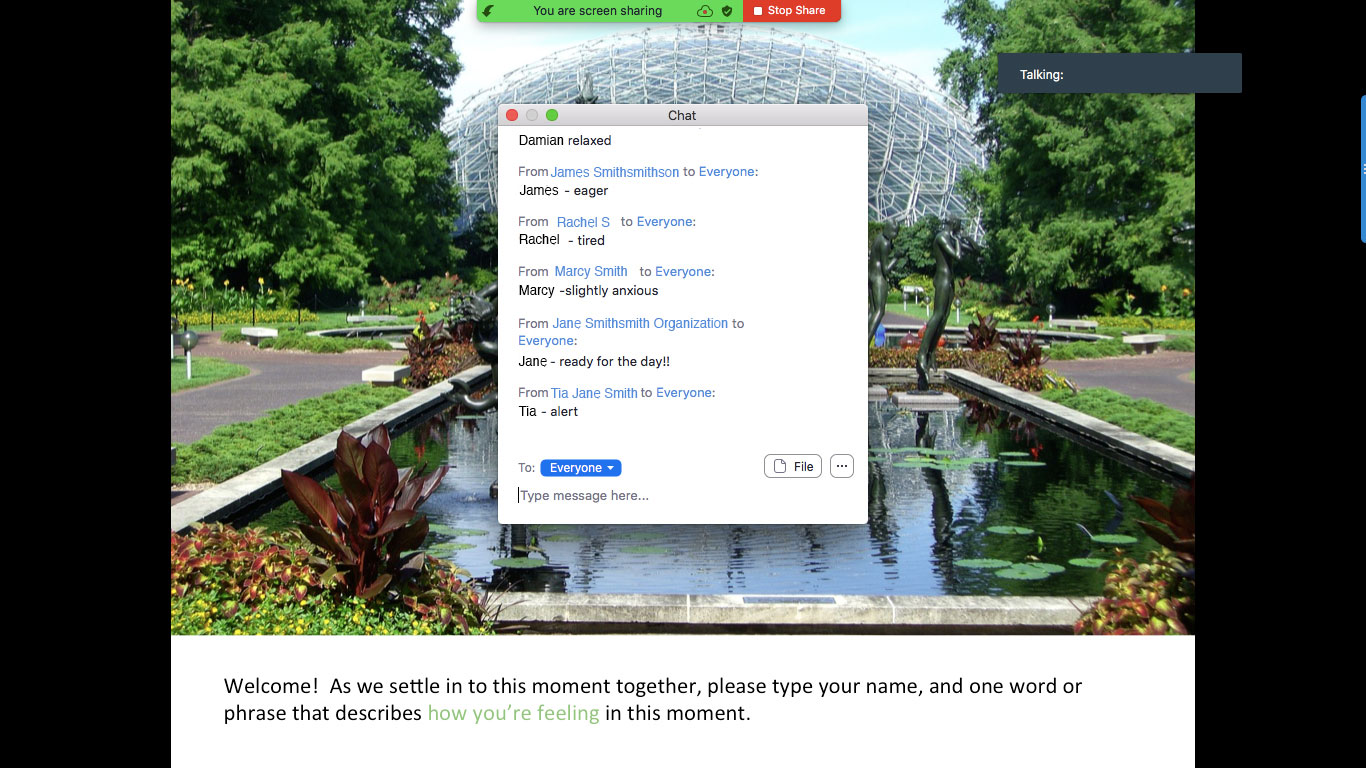
“I have seen the birth of the Mindfulness Collaboratory, and the great good it has done in such a short period of time, “ said Allison Druin, vice provost for research and strategic partnerships. “This program has taught creative professionals that creative leadership needs mindfulness. We at Pratt are excited by this work and look forward to what impact it can have on future creative professionals.”
The Mindfulness Collaboratory considers “intention” as a state of consciousness that allows a person to align with a course of action, an aim, or a purpose. By engaging its participants in techniques to lower stress, focus, and feel in control of their lives, the program is aimed at giving them the skills to make space for creativity in their leadership. Although success as a professional usually comes with an expectation of removing an inner life from one’s daily work, the Mindfulness Collaboratory argues that it is central to an impactful and sustainable career.
Katrin Hahner, a visual and sonic artist based in Germany and Iceland, said that she was immediately drawn to this focus on both mindfulness and artistic work.
“The outlook of joining a group of art professionals to not only discuss but experience the interrelation of mindfulness and innovation filled me with great excitement and it has been a fantastic experience so far,” Hahner said. “Being in an environment that promotes deep learning without ever applying competitiveness or old-school power dynamics, yet is clear, calm, and assured, is a treasure and allows for honesty, sincerity, and a depth in the sharing that is otherwise often suppressed.”
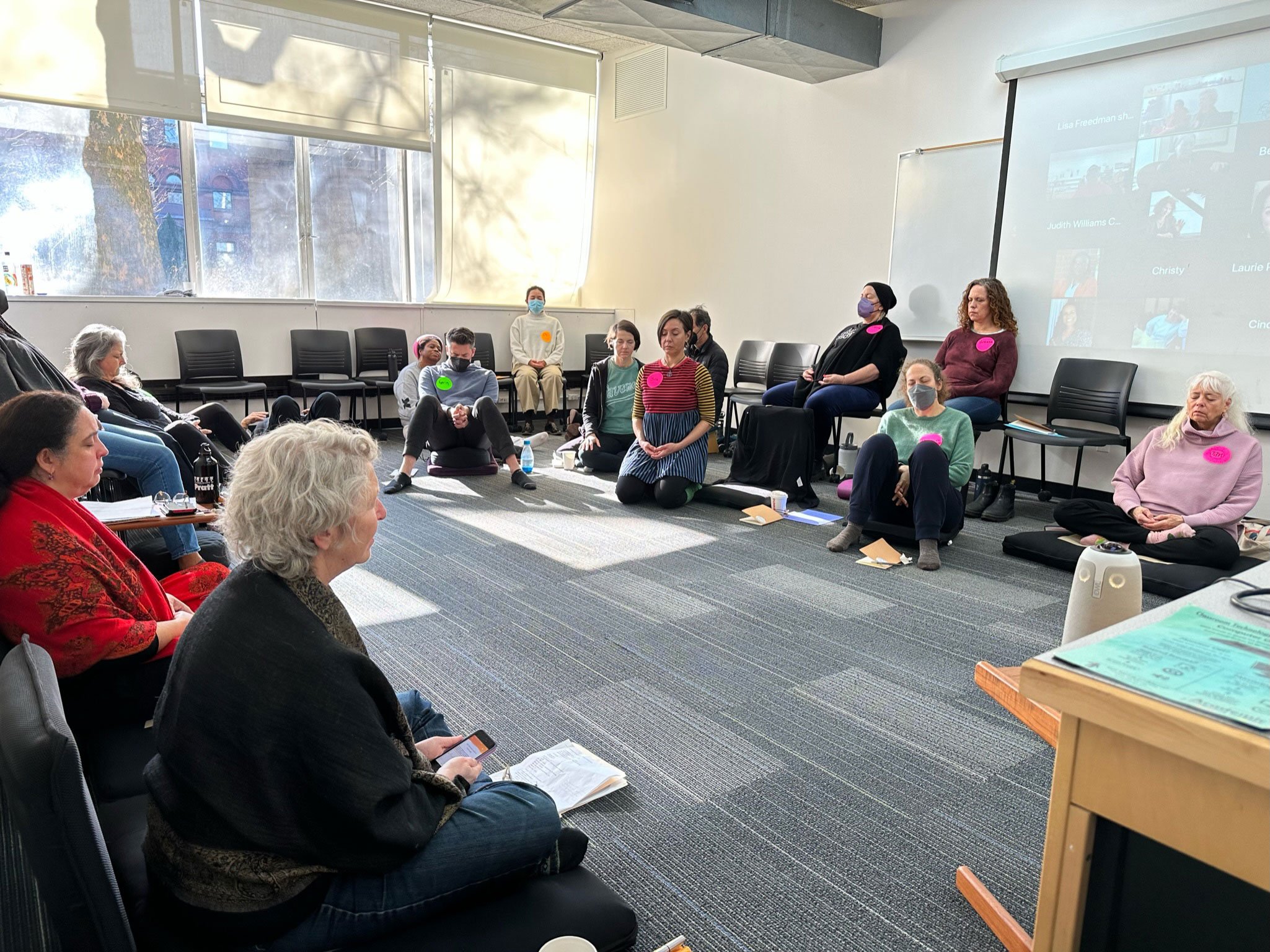
The Mindfulness Collaboratory’s hybrid, virtual, and in-person sessions, which are usually once a month and last for one and a half days, have included examinations of contemplative practices like mindfulness and meditation as well as thoughtful investigations of more informal practices related to things as basic as sitting and walking. These all offer a moment of collective pause and contribute to increasing self-awareness so that the participants can better reimagine themselves and their personal and professional lives.
“I have been so grateful for the meditation practices and mindfulness practices we have been learning to stay present and positive about one’s ability to make meaningful art or affect change in this increasingly dysregulated world,” said Agunda Okeyo, the founder and CEO of the New York-based Africa Underground Productions, which produces live and digital productions geared towards the African Diaspora. “Being in the Collaboratory and sharing our time with one another makes you feel less alone and more confident that creating healthy, loving, and reciprocal experiences has value.”
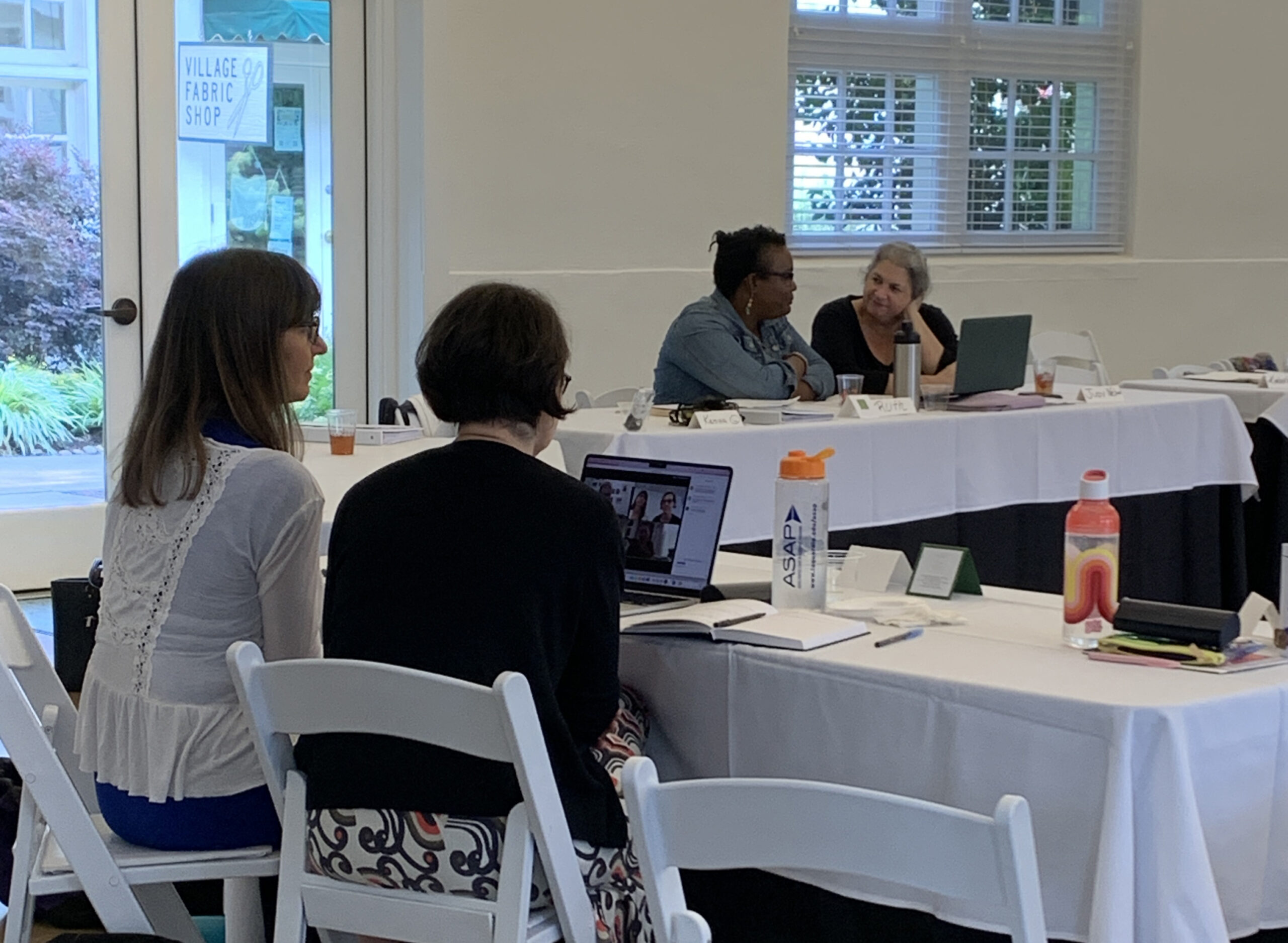
Last month in Winston-Salem, North Carolina, a gathering for the Collaboratory was held alongside the July 18 to 21 Artists Thrive Summit. Participants began realizing their projects that were started during the first part of the initiative—which can be anything from a large-scale creative project to something looser like a commitment to better well-being—and had the opportunity to attend the summit through the support of the Tremaine Foundation.
“I want to be powerful and inspire folks in my teaching practice,” said Freya Tamayo, a visiting assistant professor of fashion design at Pratt. She explained that she applied for the Mindfulness Collaboratory after a time of personal and professional upheaval. “I needed to figure out how to be impactful, proactive, and powerful—creatively and professionally—and work on being connected and present in my life. Working together has been both meaningful and growthful for me to listen to others and share with the group and come together with a purpose.”
While self-care practices like contemplative actions, meditation, or mindfulness are often viewed as only being inward-facing, the Mindfulness Collaboratory is demonstrating how they can be creative leadership tools. The potential for advancing these skills in the creative economy is further propelled by the international scope of the Collaboratory. Each participant will return to their organizations or communities with new skills and resources to lead intentionally so that they can further this experience of supporting each other as a collective so everyone can creatively grow together.
“This work took on new importance and urgency in 2019 with the onset of the COVID-19 pandemic, which has been unprecedented in its infliction of strain on emotional and cognitive bandwidth so severe as to shut down creative possibilities—a trauma acknowledged by neuroscience,” Schaller said. “The Collaboratory is a direct response to educate artists and creative professionals in self-care as an intentional conscious alignment of oneself to a course of action or purpose, the very essence of creative leadership practice. And, it allows participants to cultivate the internal skills that boost awareness through creativity and to expand one’s capacity for meaning-making. Self-care as world care, with creative small steps many times.”
